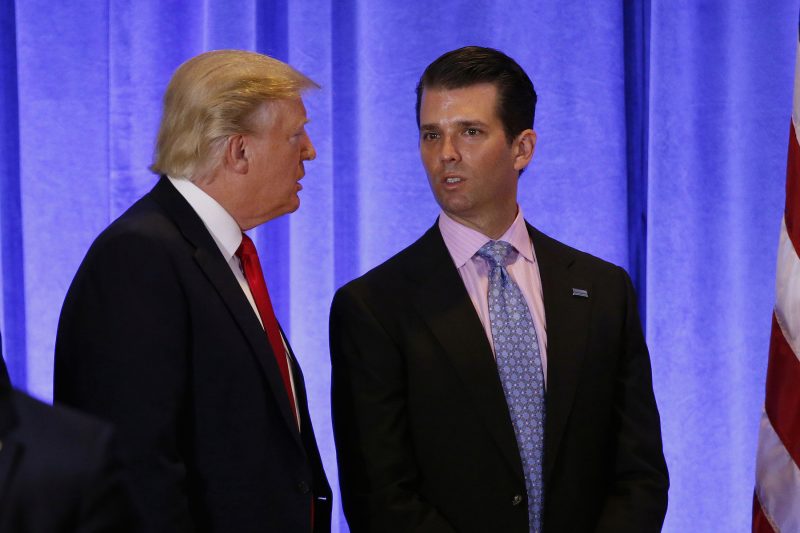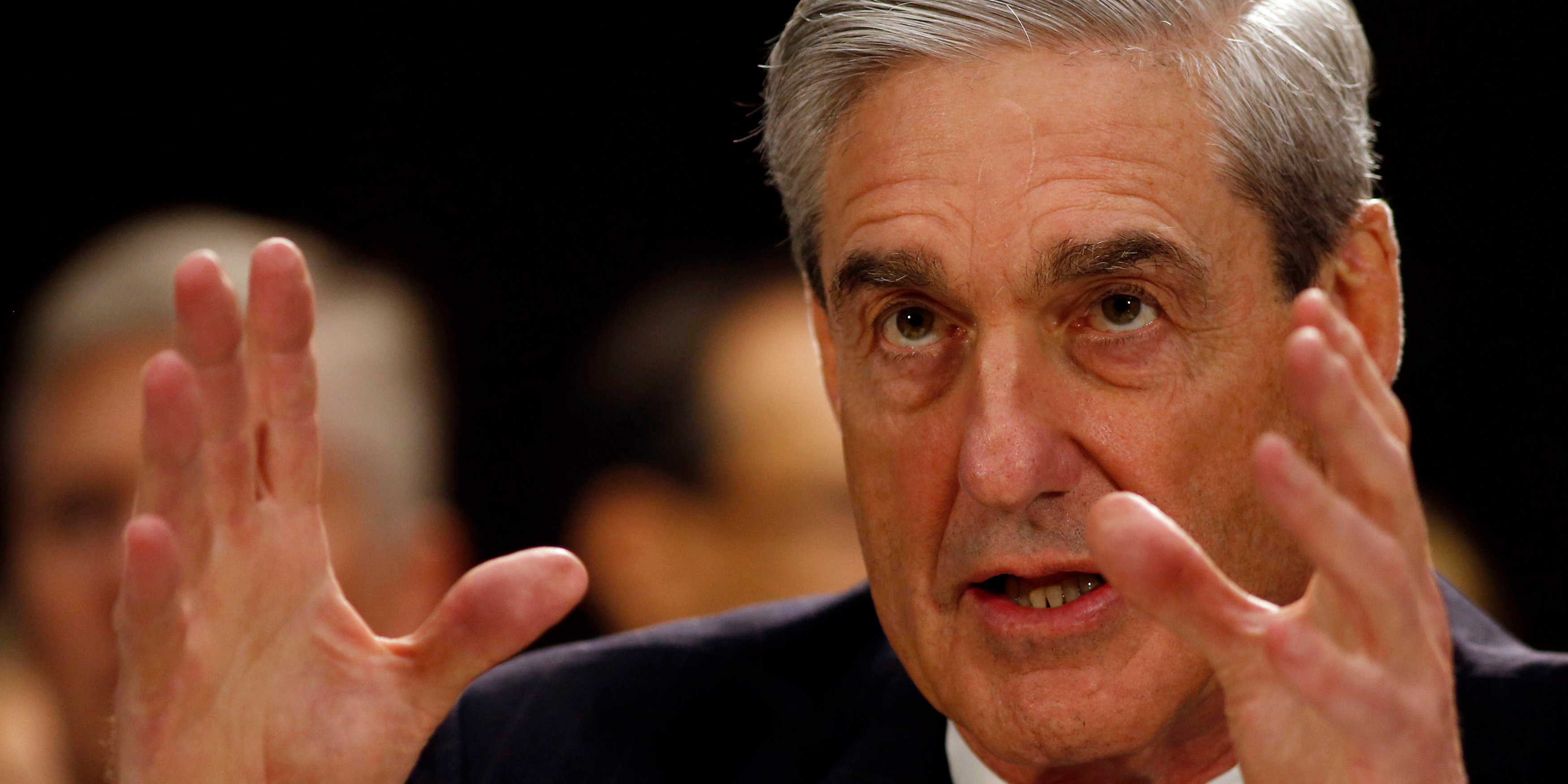- President Donald Trump said Saturday that everybody “tells me I’m not under investigation” in the FBI’s Russia probe.
- But a new report, which said special counsel Robert Mueller is calling back for questioning someone involved with Trump’s misleading statement about a 2016 meeting with a Russia-linked lawyer, appears to undermine that claim.
- Legal experts say proving Trump’s mindset when he dictated the statement could be critical to proving other charges – like obstruction of justice.
Special counsel Robert Mueller called back for questioning at least one person who was involved in the June 2016 meeting with Trump campaign advisers and a Russia-connected lawyer, The Los Angeles Times reported.
The Times further reported, confirming earlier news stories, that Mueller, who is investigating Russia’s interference in the 2016 election, recalled the individual while looking into President Donald Trump’s decision to craft an initially misleading statement about the meeting. Trump’s original statement said the meeting focused on the issue of Russian adoptions, rather than the offer of kompromat about then-Democratic candidate Hillary Clinton.
Trump said Saturday, in response to a reporter’s question about whether he would agree to be interviewed if asked to do so by Mueller, that there was “no collusion” and “no crime” and that “everybody tells me I’m not under investigation.”
But The Times’ report appears to undermine that claim.
Trump is a key figure in several threads of the Russia investigation, and Mueller is said to be building an obstruction-of-justice case against him based on his decision to fire FBI director James Comey last May. Comey was overseeing the Russia investigation at the time, and Trump told NBC's Lester Holt that "this Russia thing" had been a factor in his decision.
Legal experts said Mueller's focus on Trump's involvement in issuing the statement about the Russia meeting is likely an attempt to establish a pattern of conduct and intent, which is critical to proving obstruction of justice.
"It also shows that he's interested in attempts to conceal or shape testimony. The President's actions are under scrutiny," former federal prosecutor Renato Mariotti wrote on Twitter.
Indeed, NBC News reported that after Trump's involvement in drafting the initial statement emerged, prosecutors on Mueller's team were "keenly focused" on finding out what Trump knew about the meeting and whether he tried to conceal its purpose.

A source familiar with Mueller's thinking told NBC News that investigators are looking into whether Trump made a "knowingly false statement" when he crafted his son's response to The New York Times' initial story about the meeting.
Trump's lawyers said at first that he was not involved in and did not know about the meeting. A few weeks later, however, The Washington Post reported that Trump had overruled his advisers and personally "dictated" Trump Jr.'s first statement about it. That statement had to be amended several times after it emerged that Trump Jr. took the meeting after he was offered dirt on Clinton, and after he was informed that it was "part of Russia and its government's support for Mr. Trump."
Mariotti noted that one possibility behind the special counsel's scrutiny is that legally, "helping to conceal a conspiracy is an act in furtherance of a conspiracy."
"If you try to corruptly persuade a witness to testify falsely, that is a separate offense," he told Business Insider in September.
But "even if Trump is not charged with a crime as a result of the statement, it could be useful to Mueller's team to show Trump's conduct to a jury that may be considering other charges" like obstruction of justice, a source told NBC News.
It is routine for investigators to revisit individuals with whom they previously spoke as new information arises. That information can be in the form of statements by others they interviewed or press accounts.
"Here, it is clear that Mueller still has questions about how the Administration's statement was crafted aboard Air Force One," said former federal prosecutor Jeffrey Cramer. "That focus seems to be on the President and his son."
He added that the statement by itself does not prove obstruction, and that it is unclear whether Trump intended to mislead the public and obstruct the investigation, or to avoid embarrassment.

